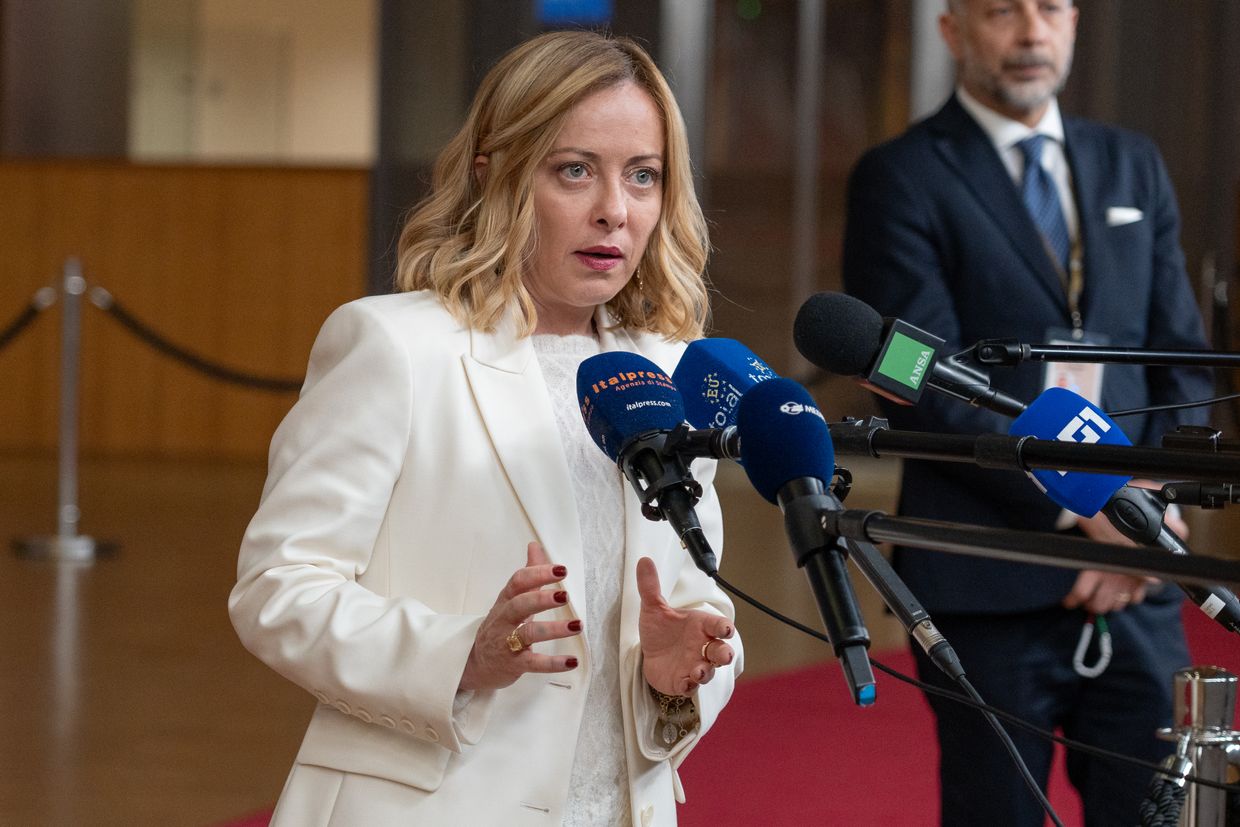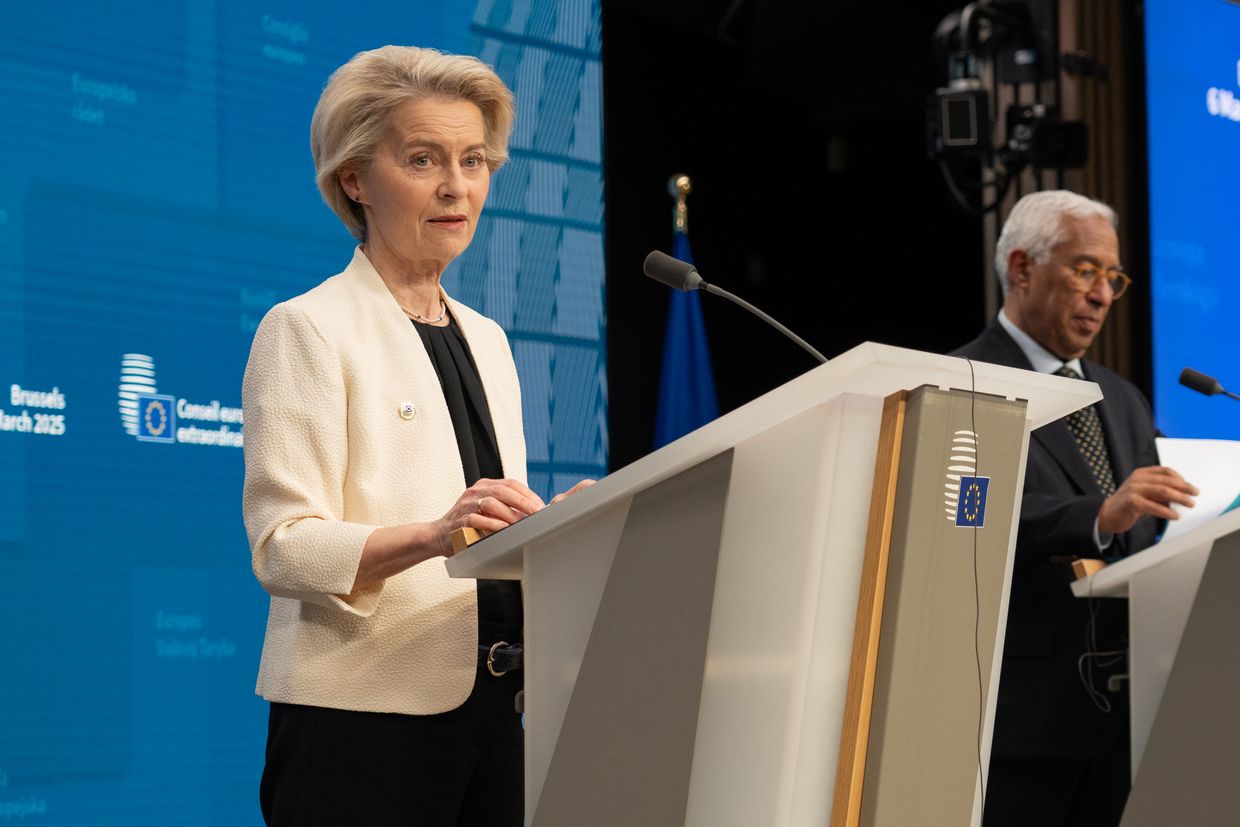"We agreed that a full and unconditional ceasefire must begin on Monday, May 12, for at least 30 days. We jointly demand this from Russia, and we know we are supported in this by the United States," Zelensky said.
The announcement follows mounting fears that the two nuclear-armed countries were on the brink of engaging in another full-scale war.
Ukrainian media outlet ZN.UA reported on May 10 that their law enforcement sources confirmed an ongoing probe by the National Anti-Corruption Bureau into suspected embezzlement, money laundering and bribery.
Iran is preparing to send Russia Fath-360 short-range ballistic missile launchers, Reuters reported on May 9, citing Western security and regional officials familiar with the matter.
"Ukraine and all allies are ready for a complete unconditional ceasefire on land, in the air, and at sea for at least 30 days, starting as early as Monday," Ukraine's Foreign Minister Andrii Sybiha wrote.
U.S. President Donald Trump has acknowledged in private that Russia is difficult to negotiate with because they "want the whole thing," referring to Ukraine, the WSJ reported, citing sources familiar with the comments.
The visit marks Merz’s first trip to Ukraine, and the first time all four leaders have travelled there together.
A notice about the airspace closure was published on the U.S. Defense Department's NOTAM (Notice to Airmen) website on May 10, as cited by Ukrainian defense news outlet Militarnyi.
"As in the past, it is now for Russia to show its willingness to achieve peace," the EU's statement reads.
Kremlin spokesperson Dmitry Peskov rejected the idea of a 30-day ceasefire between Russia and Ukraine, claiming in an interview with ABC News on May 10 that it would be "an advantage" for Ukraine.
"Our involvement in the war was justifiable, and this belongs to our sovereign rights," North Korean dictator Kim Jong Un said. "I regard this as part of the sacred mission we must execute for our brothers and comrades-in-arms."
The number includes 1,310 casualties that Russian forces suffered over the past day.
"We have a plan B and a plan C. But our focus is plan A, the essence of which is to get everyone's support" for Ukraine's accession, EU foreign policy chief Kaja Kallas said.
NATO could extend Article 5 protection to Ukraine without membership, Italian PM says

Italian Prime Minister Giorgia Meloni suggested on March 6 that NATO could extend Article 5 protections to Ukraine without granting Kyiv membership in the alliance.
The collective defense principle enshrined in NATO's Article 5 commits member nations to come to the defense of any other member state in the event of an attack.
"We need to think about more durable solutions" than just sending European peacekeepers to Ukraine, Meloni said on the sidelines of the EU leaders' meeting in Brussels. "It’s a different thing than entering NATO, but it implies extending the coverage that NATO countries have also to Ukraine," she added.
European countries, led mainly by the U.K. and France, are developing a coalition of the willing to monitor a potential ceasefire in Ukraine. Various countries outside Europe, including Canada and Australia, have voiced their openness to partake in such a mission.
NATO allies reaffirmed Ukraine's "irreversible" path toward NATO membership in July 2024, although member states have yet to provide Ukraine with a formal invitiation, despite numerous calls to do so.
Meloni's comments come as the clearest indication of her position on Ukraine's potential security guarantees. The Italian prime minister, who has served as a potential conduit between European allies and the Trump administration, will not likely find support for the proposal in the United States.
The U.S. has thus far welcomed the idea of European peacekeeping troops monitoring a potential ceasefire in Ukraine but has fallen short of offering concrete security guarantees.
Meloni's comments in Brussels comes as European leaders have failed to say how Europe would provide lasting security guarantees without U.S. backing, amid steps taken by the U.S. to distance itself from Ukraine.
When asked how Europe might provide security guarantees to Ukraine without a U.S. backstop, both European Council President Antonio Costa and European Commission President Ursula von der Leyen dodged specifics and pivoted to praising the Ukrainian military.
"The best security guarantee are the Ukrainians themselves," Costa said, highlighting the fact that Ukraine has been fighting Russia's full-scale invasion for over three years.

Most Popular

After 3 years of full-scale war in Ukraine, Europe announces plan to ban all Russian gas imports

Ukraine, Europe's ceasefire proposal includes US security guarantees, no recognition of Crimea, Reuters reports

Journalist Roshchyna's body missing organs after Russian captivity, investigation says

After Russia's deadly attack on Kyiv, Vance reposts denunciation of Zelensky

Ukrainian sea drone downs Russian fighter jet in 'world-first' strike, intelligence says
Editors' Picks

How medics of Ukraine’s 3rd Assault Brigade deal with horrors of drone warfare

As Russia trains abducted children for war, Ukraine fights uphill battle to bring them home

'I just hate the Russians' — Kyiv district recovers from drone strike as ceasefire remains elusive


